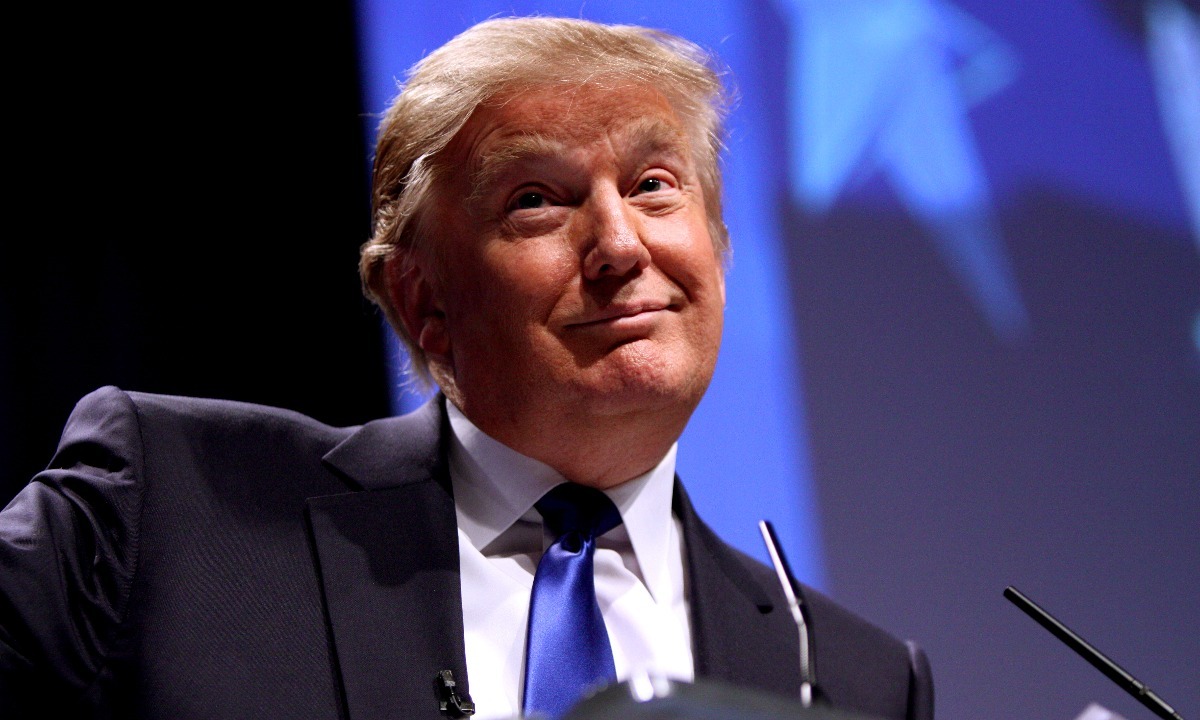Risks of Crypto Donations in Trump’s Campaign
08.08.2024 16:00 2 min. read Alexander Stefanov
For the first time in a U.S. election, a major political candidate is accepting cryptocurrency donations. Former President Donald Trump has made a surprising pivot, now embracing digital assets and even suggesting that all remaining Bitcoin should be mined in the U.S.
This shift marks a significant reversal from Trump’s previous stance, where he labeled Bitcoin a “scam” threatening the dollar. Despite this change, the crypto community’s reaction has been generally positive, with many investors and consumers eager to support his re-election bid through crypto.
Blockchain data shows that Trump has already received substantial contributions in Ethereum (ETH) and USD Coin (USDC), totaling at least $6 million through a single address in recent months.
However, accepting crypto donations comes with notable risks. The security protocols for cryptocurrencies are still evolving, and the exposure of donor addresses could lead to issues ranging from political espionage to criminal activities.
For instance, Trump’s campaign might face challenges from phishing attacks and potential contamination of funds with “dirty crypto” — stolen or illicit funds that could complicate the integrity of the campaign’s finances.
Additionally, larger donors might face scrutiny and harassment, and new supporters unfamiliar with cryptocurrencies could find the donation process cumbersome and risky. Fake donation sites could also trick donors, intercepting their funds.
The campaign will need to address these risks by implementing secure practices and considering new technologies. Solutions such as human-readable addresses and enhanced cryptographic proofs could simplify the donation process and improve security.
As digital assets become more integrated into political fundraising, addressing these issues will be crucial for campaigns looking to harness the benefits of cryptocurrency donations while mitigating associated risks.
-
1
Trump Imposes 50% Tariff on Brazil: Political Tensions and Censorship at the Center
10.07.2025 7:00 2 min. read -
2
Key Crypto Events to Watch in the Next Months
20.07.2025 22:00 2 min. read -
3
USA Imposes Tariffs on Multiple Countries: How the Crypto Market Could React
08.07.2025 8:30 2 min. read -
4
UAE Regulators Dismiss Toncoin Residency Rumors
07.07.2025 11:12 2 min. read -
5
Ripple Selects BNY Mellon as Custodian for RLUSD Stablecoin Reserves
09.07.2025 15:28 2 min. read
Two Upcoming Decisions Could Shake Crypto Markets This Week
The final days of July could bring critical developments that reshape investor sentiment and influence the next leg of the crypto market’s trend.
Winklevoss Slams JPMorgan for Blocking Gemini’s Banking Access
Tyler Winklevoss, co-founder of crypto exchange Gemini, has accused JPMorgan of retaliating against the platform by freezing its effort to restore banking services.
Robert Kiyosaki Warns: ETFs Aren’t The Real Thing
Renowned author and financial educator Robert Kiyosaki has issued a word of caution to everyday investors relying too heavily on exchange-traded funds (ETFs).
Bitwise CIO: The Four-Year Crypto Cycle is Breaking Down
The classic four-year crypto market cycle—long driven by Bitcoin halvings and boom-bust investor behavior—is losing relevance, according to Bitwise CIO Matt Hougan.
-
1
Trump Imposes 50% Tariff on Brazil: Political Tensions and Censorship at the Center
10.07.2025 7:00 2 min. read -
2
Key Crypto Events to Watch in the Next Months
20.07.2025 22:00 2 min. read -
3
USA Imposes Tariffs on Multiple Countries: How the Crypto Market Could React
08.07.2025 8:30 2 min. read -
4
UAE Regulators Dismiss Toncoin Residency Rumors
07.07.2025 11:12 2 min. read -
5
Ripple Selects BNY Mellon as Custodian for RLUSD Stablecoin Reserves
09.07.2025 15:28 2 min. read



